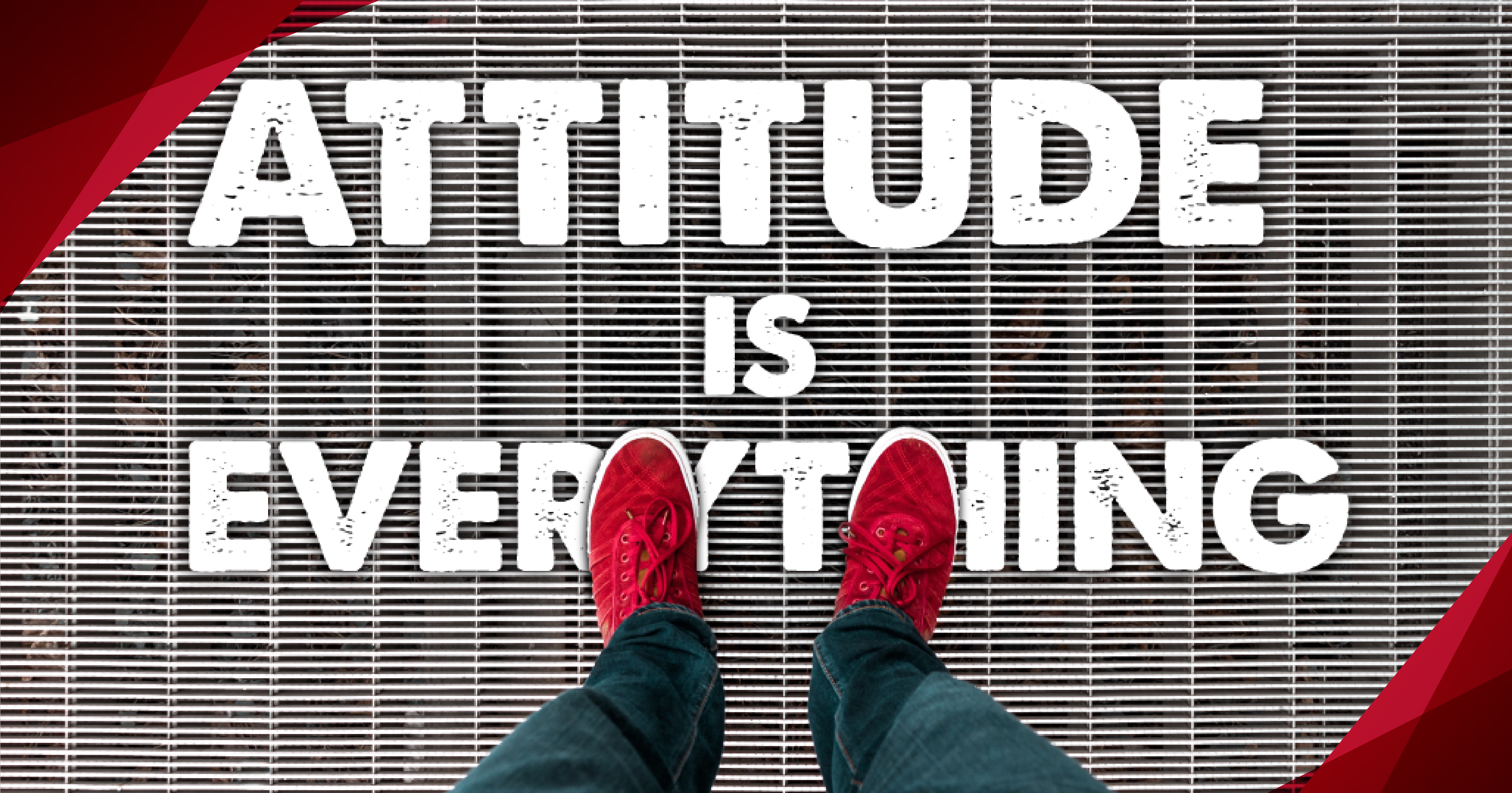You wake up to the blaring noise of your alarm and realize with horror that you’ve pressed snooze one too many times and overslept. Jumping out of bed, you remember your favorite pair of pants are still in the washing machine and you’re out of milk for your morning breakfast cereal. A thought enters your head as you head out the door, “This day is completely ruined” – but is it really?
Having a good attitude sounds useful and admirable on the surface, until you have a morning like the one just described. All of our well-meaning mantras and peaceful thoughts are immediately disabled due to unforeseen circumstances. So how do we cope? And why is it so important to make the effort?
Your brain is the capital of your well-being, from motor skills, to critical thinking and judgement, it has the power to defeat you or empower you and caring for your mental health may even make you better at your job. Shawn Achor, author of The Happiness Advantage, argues that while we are convinced that success will bring us the happiness we desire, it turns out that individual happiness actually breeds success. Anchor found that “only 25 percent of job success is based on IQ. Seventy-five percent is about how your brain believes your behavior matters, connects to other people and manages stress.” Simply put, practicing a positive attitude isn’t just a good habit, it’s a critical indicator of your work and personal success.
Whether it is a late morning, a rude driver, a missed promotion or something even more serious, life will inevitably throw an unfortunate circumstance your way. Here are a few ways to overcome and get back on track to living your most positive life:
Get After Grateful
It’s no secret that there are a variety of things in the world to be angry, sad or anxious about. But there are also just as many things to be joyful, excited and passionate about. It’s up to you to decide what you’d rather focus on, the negative ones or the positive. One way to train your brain to focus on the positive is to practice gratitude. Gratitude is when we express thankfulness for people, things or experiences in our life. We can be grateful for safety, a delicious sandwich for lunch, a conversation with a friend or even just a comfortable bed to sleep in at night. These are small examples, but they add up to large changes in our brain. Ready to get a gratitude boost? Sit down with a piece of paper and write a list of everything you can think of that you’re thankful for. It’s almost impossible to be anxious and grateful at the same time.
Talk to Yourself
You’re not crazy, we promise! Each of us has internal dialogues constantly running in our brains, which frame our relations to life and the circumstances that surround us. One way to promote positivity and optimism is to intentionally change and control these thoughts to be positive. Too often, the pattern we’ve developed in our minds is negative. When something negative happens to us, our brains naturally follow a negative path, which elicits a negative reaction, emotion and subsequent action. However, you have the power to alter the path! Find yourself feeling frustrated with a co-worker or project? Instead of letting your brain take over, replace those thoughts with ones about thankfulness for a job and a paycheck, the ability to use your skills to impact others and your goals for your career.
Schedule Rest and Play
Naps and play-dates are key parts to a child’s day, but what about ours? So much of our day-to-day lives are taken up with working, critical thinking and producing, that we leave no time for our brains to rest and recover in order to stay healthy. When is the last time you allowed yourself (guilt-free) time to experiment, adventure, rest, enjoy or play? Giving yourself daily or weekly permission to do something that allows your brain to “turn off” and brings you natural joy and positive emotions will ultimately fill your brain’s positivity tank and impact the way you handle adversity and treat those around you.
While attitude shifts take time and discipline, there’s no better way to make a positive impact on both your personal and professional life than to start shaping your mindset. Now, start penning that gratitude list. Strike up a conversation with that co-worker down the hall. Schedule a Saturday afternoon picnic in the park. Smile at a stranger as you pick up your morning coffee. Tell yourself that you can accomplish anything and watch as you start to.






